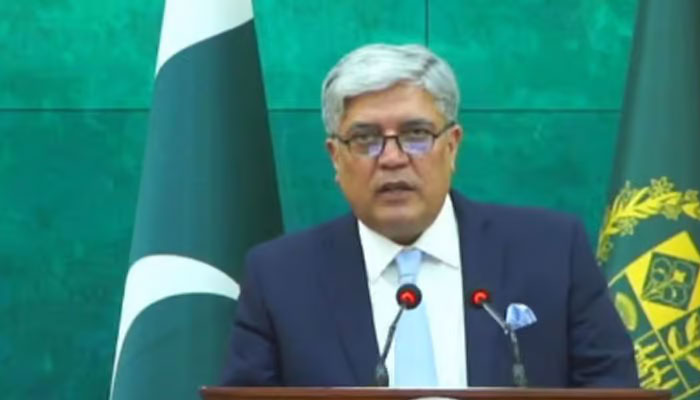Islamabad – Pakistan has strongly rejected the recent remarks by UN experts regarding the situation in Balochistan and reiterated its commitment to take no concessions for those facilitating terrorism. Foreign Office Spokesperson, Shafqat Ali Khan, addressed the issue in a weekly news briefing on Thursday, expressing regret over the statement by the UN experts, clarifying that the protesters involved in agitation were not peaceful and were, in fact, “close comrades” of terrorists.
The spokesperson emphasized that the agitational protesters were part of a larger campaign of lawlessness and violence, with their actions endangering public safety. He stated that the Pakistani government would not provide any leniency or concessions to these elements, who he described as actively collaborating with terrorists and undermining state authority.
Khan criticized the UN experts for issuing unbalanced and disproportionate comments that downplayed civilian casualties from terrorist attacks while disregarding the crimes of those who disrupt public services and create an atmosphere of insecurity. He pointed out that these protesters were not simply demonstrating but were engaging in coordinated actions to obstruct government responses, including roadblocks used to facilitate terrorist attacks.
One recent incident highlighted by the spokesperson was the unlawful storming of the District Hospital in Quetta by protesters, where they seized the bodies of five terrorists killed during the Jaffar Express hostage rescue operation. Police had to intervene and retrieve three of the bodies from the protesters.
Khan also criticized the UN experts’ statements for inadvertently strengthening extremist elements and fueling media sensationalism, which further exacerbates societal fragmentation and polarization. He argued that such statements contradicted the essence of UN Resolution 2354, which calls for support in combating terrorism. He warned that such comments risk legitimizing extremist narratives, which is counterproductive and against the principles upheld by the UN.
In addition to the Balochistan situation, the spokesperson also addressed several international matters during the briefing. Pakistan welcomed the limited ceasefire agreement between Russia and Ukraine, particularly the prohibition of attacks on energy infrastructure and the guarantee of safe navigation in the Black Sea. Khan expressed optimism that the agreement could lead to a comprehensive and permanent ceasefire.
He also condemned Israel’s repeated air strikes and incursions into Syrian territory, calling them a violation of Syria’s sovereignty and international law. Khan reiterated Pakistan’s support for a credible political transition and national unity in Syria as the basis for lasting peace.
Regarding India, the spokesperson expressed concerns over Indian raids on the homes of All Parties Hurriyat Conference (APHC) leaders in Indian Illegally Occupied Jammu and Kashmir (IIOJK). He called for an end to oppressive measures and for the Indian authorities to respect the rights and freedoms of the Kashmiri people, including their right to self-determination.
Read more: Vibrant Art Exhibition Celebrates Pakistan’s Colors in the UAE
Finally, Khan briefed the media on the recent visit of Pakistan’s Special Representative for Afghanistan, Ambassador Mohammad Sadiq, to Kabul. During the visit, the two sides discussed various mutual concerns, including peace and security, trade, economic cooperation, and people-to-people contacts. Both sides agreed to enhance high-level engagement and strengthen bilateral cooperation for regional peace and stability.
During the briefing, Khan also welcomed the United States’ recognition of the Tehrik-i-Taliban Pakistan (TTP) as a threat, reinforcing Pakistan’s stance on the matter.




Comments are closed, but trackbacks and pingbacks are open.